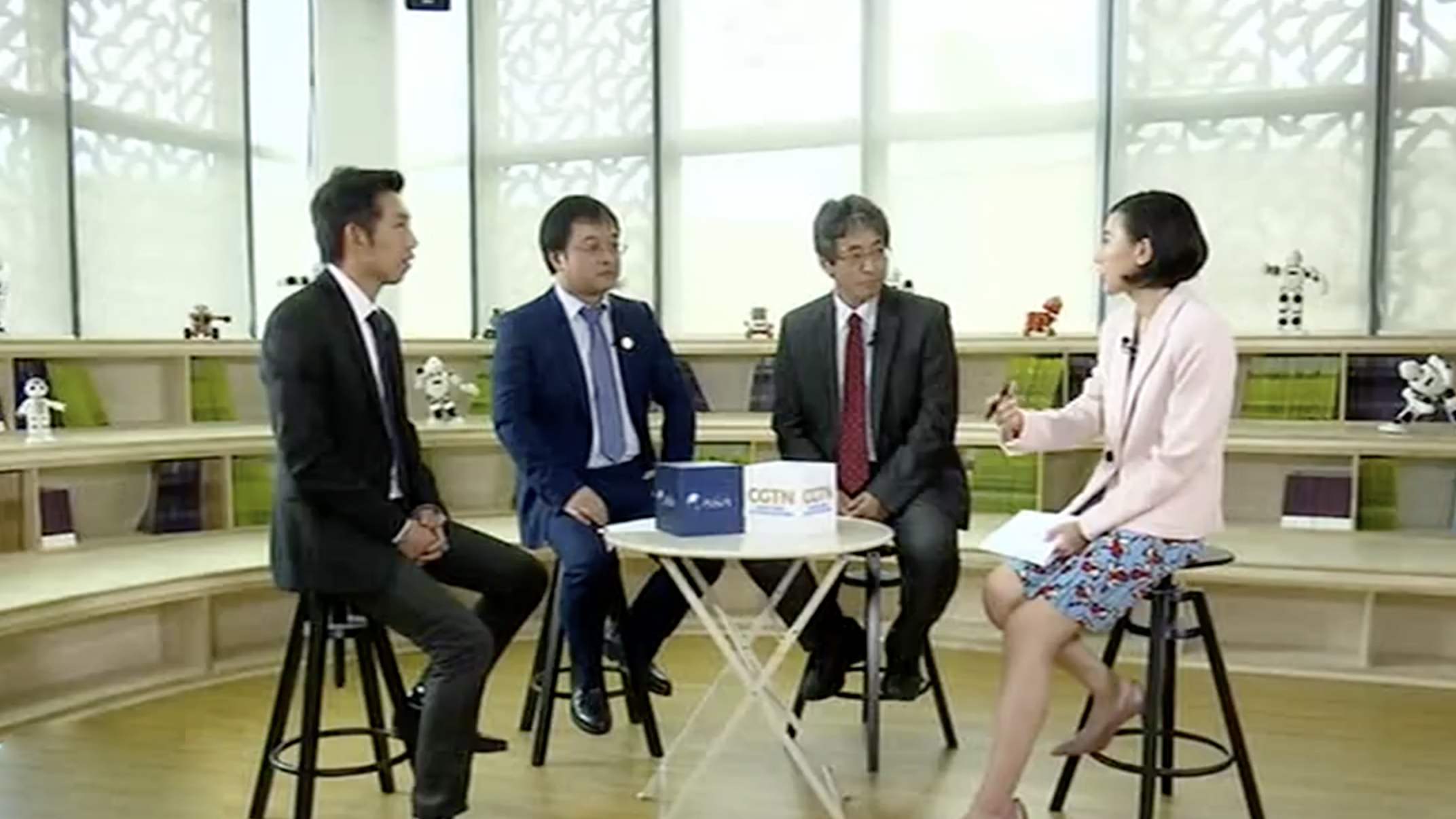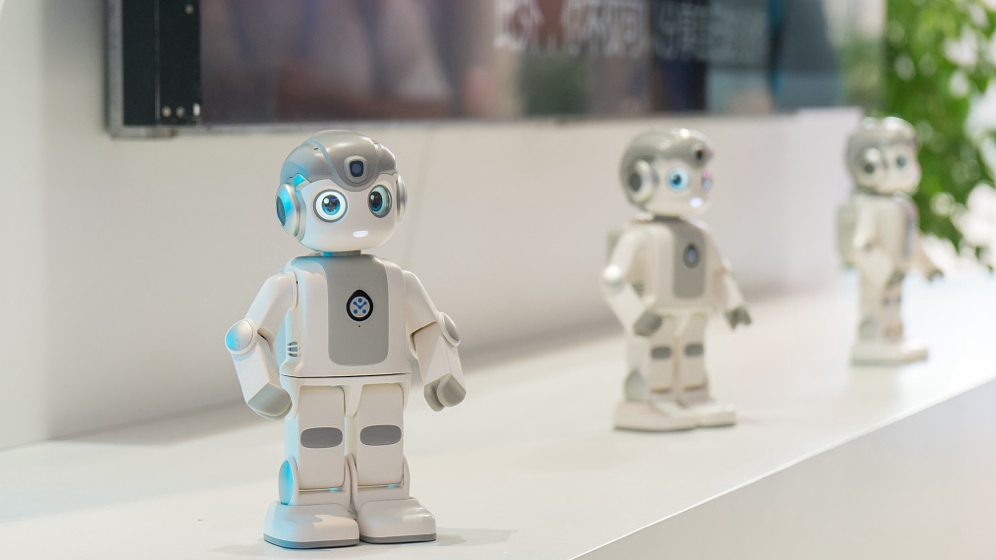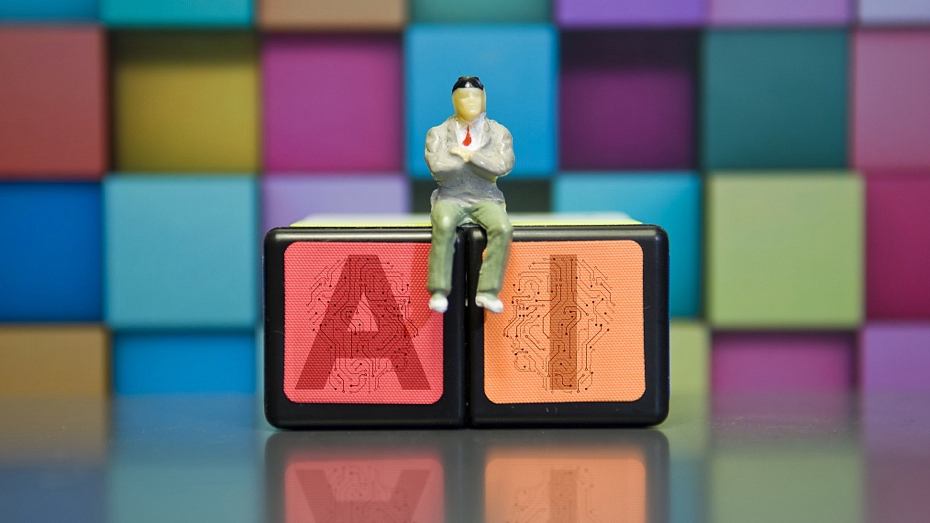
Biz Analysis
19:59, 27-Mar-2019
China enters the age of AI, exceed in application
Updated
22:15, 27-Mar-2019
He Weiwei and Zhao Yuheng
04:09

Many believe the next industrial revolution lies in Artificial Intelligence (AI), and it represents the future. But some may not have realized that AI is already used currently in many aspects of people's daily lives. CGTN Focus Group goes to Shenzhen city, China's technological innovation hub, to listen to insiders' opinions.
When waiting for food delivery or hailing a taxi via cellphone APPs, have you realized that it's AI that decides how fast you can get the food, or which car you'll take? Tang Ke, Professor from Computer Science and Engineering Department of Southern University of Science and Technology (SUSTech) says that AI is widely used in searching engines, online shopping websites, translation machines, ticket-checking systems, etc.
Michael Tam, CBO of UBTECH introduces that his company produces different kinds of robots, used for early education, public services, security, etc.

UBTECH Robots “Alpha Mini” Photo/VCG
UBTECH Robots “Alpha Mini” Photo/VCG
China and the U.S. excel in different fields of AI
The US president Donald Trump signed in February an “Executive Order on Maintaining American Leadership in Artificial Intelligence”. Michael Tam believes while the US is the top in the research field, China's competitiveness lies in applications. APPs such as mobile payments, car-hailing, and other services have become so common in China that it's hard for Chinese to imagine a life without AI. Being good in research is one thing, transferring that into applications is another.
Hisao Ishibuchi, Editor-In-Chief of the Computational Intelligence Magazine of the Institute of Electrical and Electronics Engineers (IEEE) says AI is not an independent product, when we talk about AI, it has to be “AI+”, combining AI with different products such as cars and robots, which requires deep collaboration between developers and experts from different fields. In order to make better products, a better mechanism of such communication should be built.
Do you trust AI?
One principle mentioned in Donald Trump's executive order is to “foster public trust towards AI.” In the CGTN Focus Group discussion, when asked “will you trust an AI doctor or a driverless car?” Hisao Ishibuchi answers by taking Aircraft Autopilot system as an example: for most of the time, planes are operated by the system, not the pilots, it's safe.

Experts believe that the safety of AI and the people's knowledge of it are more important at current stage. Photo/VCG
Experts believe that the safety of AI and the people's knowledge of it are more important at current stage. Photo/VCG
Tang Ke believes to enrich people's knowledge about AI and its safety is more important than merely seeking technological breakthroughs. Besides, more regulations and policies should be made to clarify the responsibilities of different parties of AI products.
Experts believe that AI will replace human beings in labor-intensive jobs or repetitive work such as customer service in the future, but in the meantime, it will create other job opportunities like engineers, staff for system maintenance, etc. That requires more input in higher-level education in order to meet the market's demand.
(Lai Shiwen also contributed to this story.)

SITEMAP
Copyright © 2018 CGTN. Beijing ICP prepared NO.16065310-3
Copyright © 2018 CGTN. Beijing ICP prepared NO.16065310-3